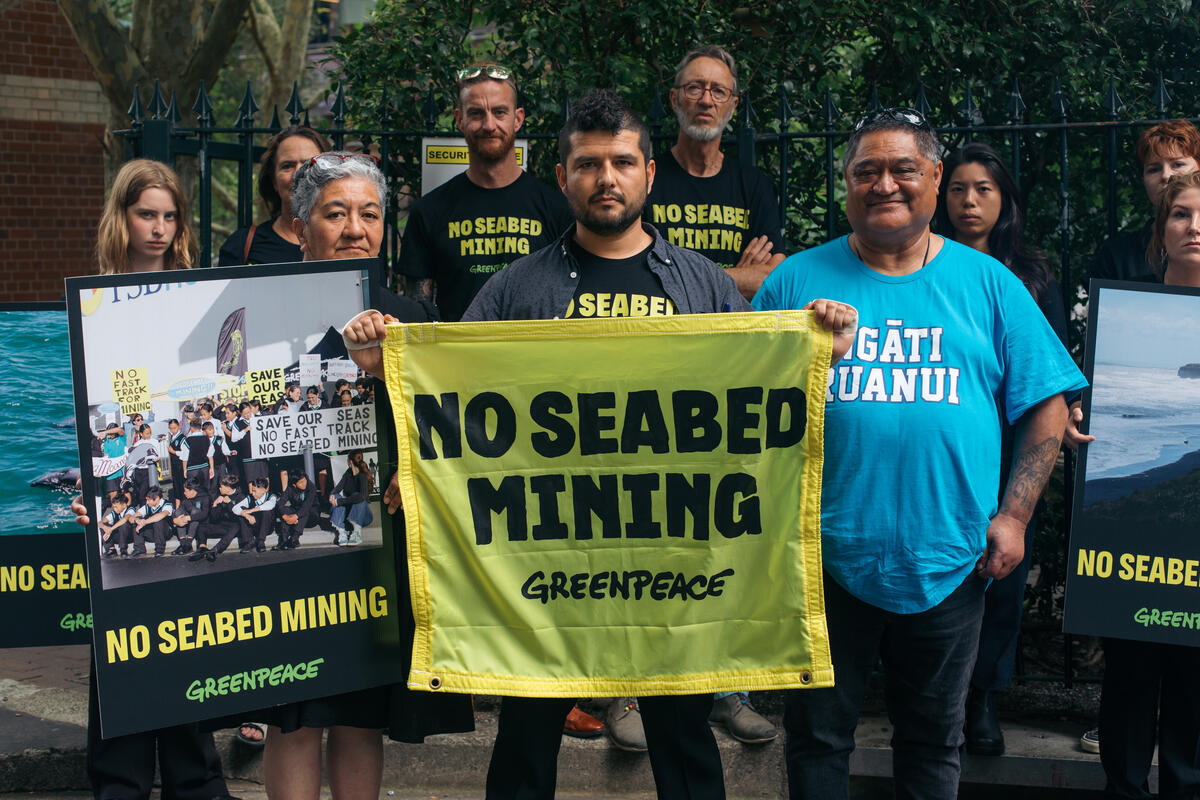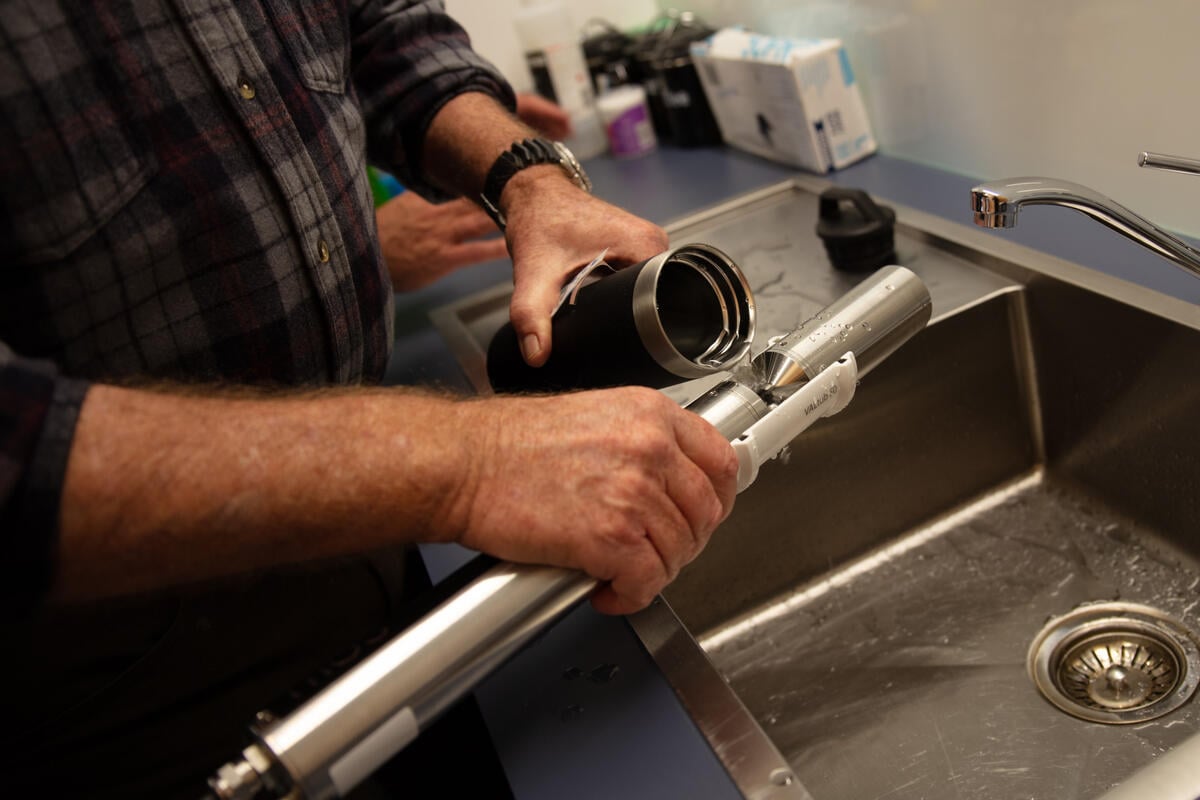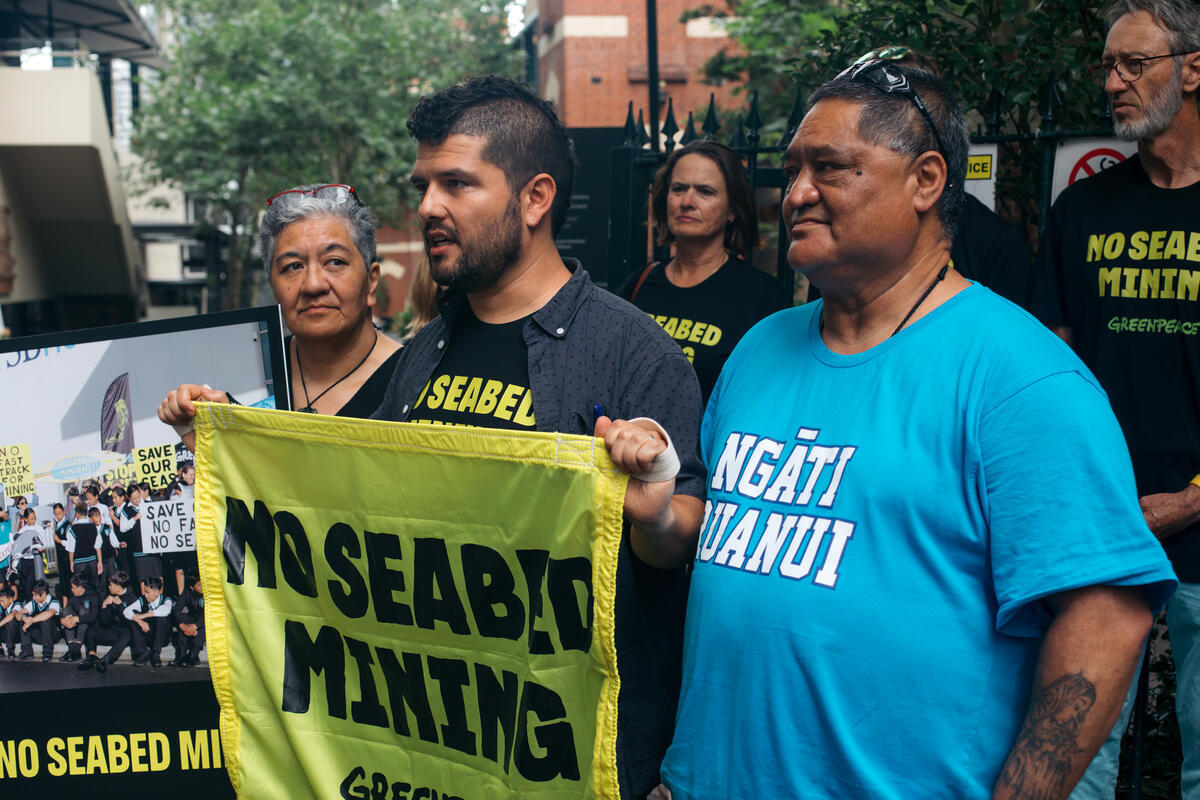After a Ministry for the Environment report revealed rural schools across the country are facing heightened levels of nitrate, e.coli, and in several cases, dangerous levels of arsenic in their water supplies, Greenpeace is warning that the fast-track approvals bill will worsen drinking water quality across the country.
Greenpeace spokesperson Will Appelbe says, “While the Government’s own reports indicate that rural children are at increased risk of health impacts from drinking unsafe and contaminated water, Luxon and his cronies continue to press on with the undemocratic and anti-environment fast track bill that will put more people at risk.”
“The Fast Track Bill will make drinking water quality worse across the country. Contamination of drinking water with toxic heavy metals often occurs as a result of gold mining – and fast-tracked gold mines are planned in both the Waikato and Otago regions.
“On top of more water contamination from mining, massive irrigation schemes in Hawke’s Bay and Canterbury are set to expand intensive dairying, which is the primary source of nitrate contamination in drinking water.”
There are three irrigation projects listed in the fast track list, including the Ruataniwha Dam in Hawkes Bay and the Klondyke water storage dam in Canterbury. Both of these dams have been labelled ‘zombie projects’, as attempts to construct them initially failed to proceed due to the environmental impacts of the proposals. There are also three gold mining projects planned in Waikato and Otago.
“Everyone, no matter where they live, should be able to access safe, healthy drinking water. But reports have shown that rural children are consistently being exposed to dangerous levels of nitrate in their water, putting them at increased risk of developing bowel cancer later in life,” says Appelbe.
Greenpeace says that the health impacts of nitrate are just the start. Chemicals like arsenic and bacteria like E.Coli also have serious health implications, particularly for children.
“The fast-track bill will increase the risk of further drinking water contamination because the fast-track process is all about bypassing public consultation and environmental protections to allow more polluting industries, including mining and intensive farming. That will lead to more contaminants in drinking water,” says Appelbe.
“Nobody wants their kids drinking polluted water. And that’s why local communities will stand up to resist more mining or more dairy intensification. Any company who thinks they’ll get an easy ride with the fast-track is underestimating what people will do to protect their kids’ health.”



